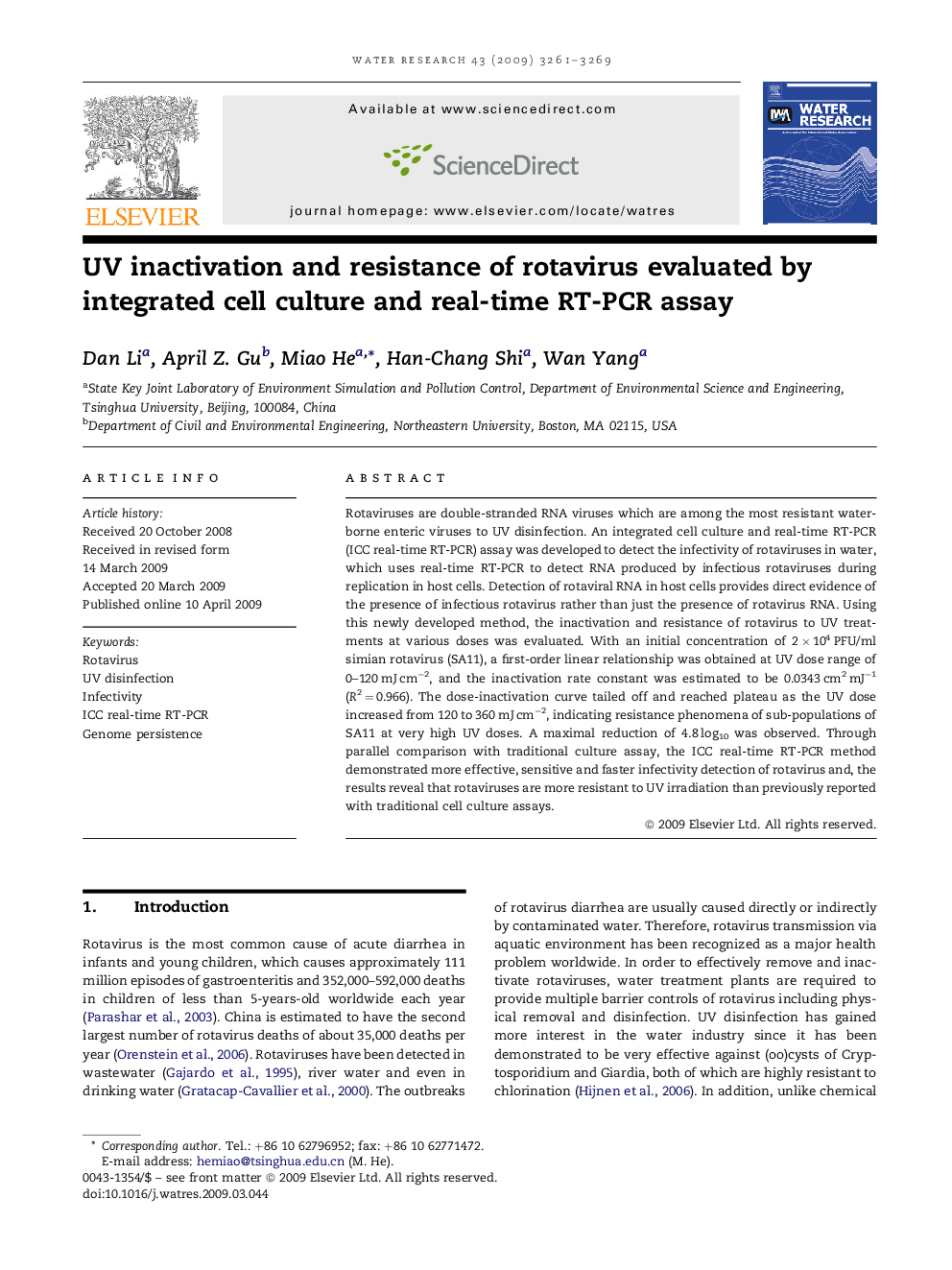| Article ID | Journal | Published Year | Pages | File Type |
|---|---|---|---|---|
| 4484255 | Water Research | 2009 | 9 Pages |
Rotaviruses are double-stranded RNA viruses which are among the most resistant waterborne enteric viruses to UV disinfection. An integrated cell culture and real-time RT-PCR (ICC real-time RT-PCR) assay was developed to detect the infectivity of rotaviruses in water, which uses real-time RT-PCR to detect RNA produced by infectious rotaviruses during replication in host cells. Detection of rotaviral RNA in host cells provides direct evidence of the presence of infectious rotavirus rather than just the presence of rotavirus RNA. Using this newly developed method, the inactivation and resistance of rotavirus to UV treatments at various doses was evaluated. With an initial concentration of 2 × 104 PFU/ml simian rotavirus (SA11), a first-order linear relationship was obtained at UV dose range of 0–120 mJ cm−2, and the inactivation rate constant was estimated to be 0.0343 cm2 mJ−1 (R2 = 0.966). The dose-inactivation curve tailed off and reached plateau as the UV dose increased from 120 to 360 mJ cm−2, indicating resistance phenomena of sub-populations of SA11 at very high UV doses. A maximal reduction of 4.8 log10 was observed. Through parallel comparison with traditional culture assay, the ICC real-time RT-PCR method demonstrated more effective, sensitive and faster infectivity detection of rotavirus and, the results reveal that rotaviruses are more resistant to UV irradiation than previously reported with traditional cell culture assays.
